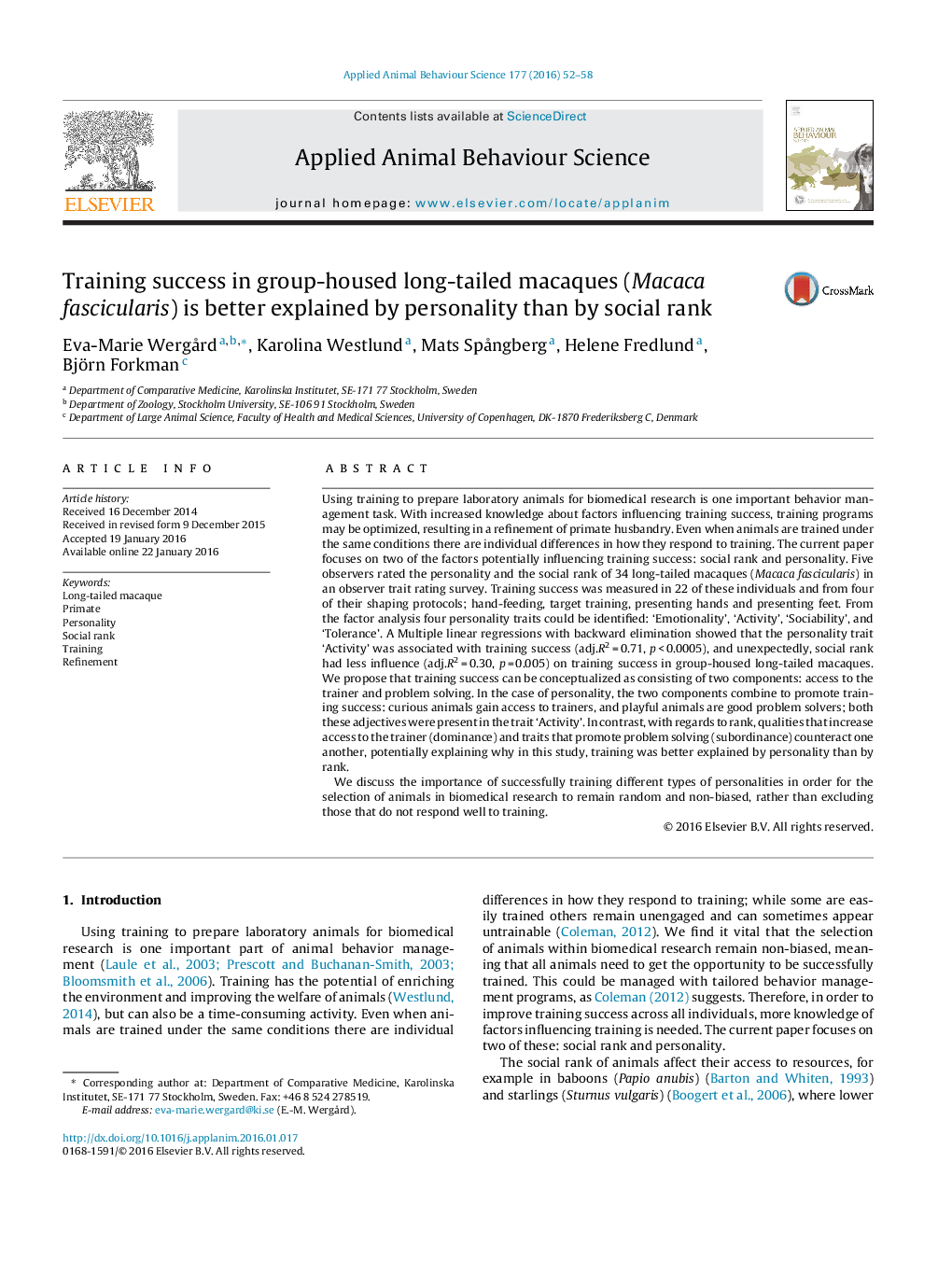| کد مقاله | کد نشریه | سال انتشار | مقاله انگلیسی | نسخه تمام متن |
|---|---|---|---|---|
| 4522428 | 1625329 | 2016 | 7 صفحه PDF | دانلود رایگان |

• Social rank and personality influence trainability in Macaca fascicularis.
• Social rank was associated with training success to a lesser degree.
• Playfulness and exploration were important personality traits.
• Implications involve differential training approaches.
Using training to prepare laboratory animals for biomedical research is one important behavior management task. With increased knowledge about factors influencing training success, training programs may be optimized, resulting in a refinement of primate husbandry. Even when animals are trained under the same conditions there are individual differences in how they respond to training. The current paper focuses on two of the factors potentially influencing training success: social rank and personality. Five observers rated the personality and the social rank of 34 long-tailed macaques (Macaca fascicularis) in an observer trait rating survey. Training success was measured in 22 of these individuals and from four of their shaping protocols; hand-feeding, target training, presenting hands and presenting feet. From the factor analysis four personality traits could be identified: ‘Emotionality’, ‘Activity’, ‘Sociability’, and ‘Tolerance’. A Multiple linear regressions with backward elimination showed that the personality trait ‘Activity’ was associated with training success (adj.R2 = 0.71, p < 0.0005), and unexpectedly, social rank had less influence (adj.R2 = 0.30, p = 0.005) on training success in group-housed long-tailed macaques. We propose that training success can be conceptualized as consisting of two components: access to the trainer and problem solving. In the case of personality, the two components combine to promote training success: curious animals gain access to trainers, and playful animals are good problem solvers; both these adjectives were present in the trait ‘Activity’. In contrast, with regards to rank, qualities that increase access to the trainer (dominance) and traits that promote problem solving (subordinance) counteract one another, potentially explaining why in this study, training was better explained by personality than by rank.We discuss the importance of successfully training different types of personalities in order for the selection of animals in biomedical research to remain random and non-biased, rather than excluding those that do not respond well to training.
Journal: Applied Animal Behaviour Science - Volume 177, April 2016, Pages 52–58